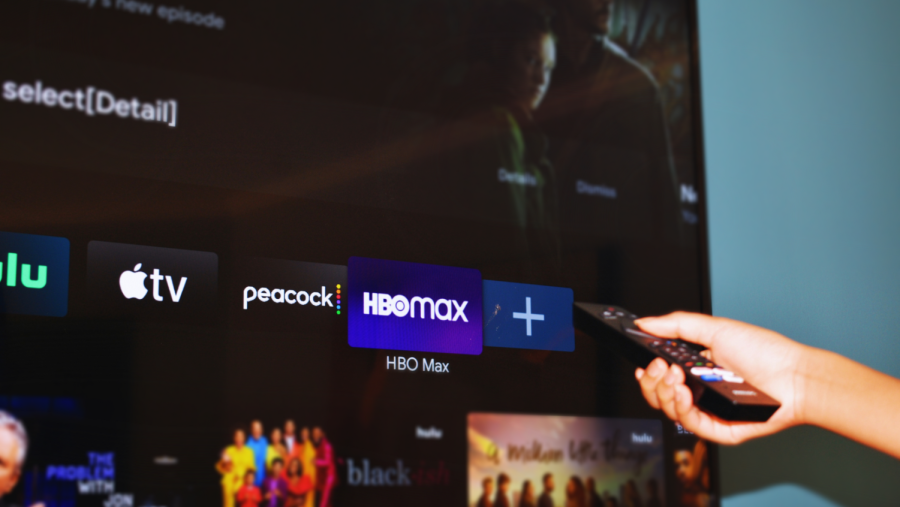Binge-culture: revamped and ruined
From Netflix to cable viewing, people who enjoy watching television in their free time usually relish either weekly show releases or binge-watch through their televisions. While both forms of watching contain downsides and positives, the current binge model forced down the throats of viewers shows unreasonable aspects.
March 7, 2023
As media expands and the original idea of entertainment through the Internet advances, streaming platforms numerous individuals globally learned to know and love continue to find new ways to capture their entertainment-hunger viewers into a recurring cycle of monthly subscriptions. When looking at entertainment through a business lens the marketing field constantly changes its apps for users. As a result, users notice significant differences in their viewer experience, including shortening of season lengths, shows canceled after one or two seasons and the binge model—a marketing scheme where a whole season is released simultaneously. Even though these advancements lead to higher viewer levels and engagement, viewer enjoyment starts to dwindle as film nerds and show-geeks reminisce on the times of weekly releases. Although the new show streaming platform provides the greatest growth and money for streaming companies, viewers become stuck in a never-ending cycle of binge-watching incredibly short shows that they finish within a day, leading to boredom and a lack of prolonged connection to a show.
In the beginning stages of Netflix, the new idea of binge-watching became a huge hit. “House of Cards” remains a great example of binge-culture success; the 2013 show marked a staple moment within history that led to a significant influx of subscribers to Netflix, an app that three years prior began releasing shows with binging in mind. The obsession started from there: binging became the best new form of approaching the ever-expanding world of internet-based television watching.
At the start, this further advancement curated overall positives for everyone. Streaming networks hit all-time highs—even surpassing cable television in 2022—and watchers stayed glued to their seats binging and binging, show after show, from “Stranger Things” to “Breaking Bad” to even “Cocomelon”. In hindsight, binge culture stood as a perfect system that didn’t need any changes. Or so viewers presumed. While the positives of binge culture remain successful, money-hungry companies will almost always push further to gain as much capital as humanly possible. In this situation, platforms created distinct strategies to quench their economic desires.
One of the main changes streaming platforms implement to boost their sales includes the loss of weekly episodes. Not new to the game, full-release seasons help online-based services stand out over general cable TV. Instead of waiting for a season to release within a weekly manner, an entire season releases on the same day, at the same time. This noteworthy change in how viewers approach television watching formed the idea of binge culture as people know it today.
While the clever idea worked initially, non-weekly releases can become a nightmare for keeping interested past the first week’s release. Since the show releases within one day, viewers finish the show in one sitting, then move to the next. It ensures that completing the show becomes common and immediate—but the influx of show cancellations and lowered show interest over time evolve into a concern for show producers. Forced to move on to the next prominent show, viewers stand less likely to check in for another season or care about any other updates about a show they finished within one day. Even though these new changes currently spark negative feelings within audiences that enjoy indulging in longer, strained seasons, numerous individuals rather stick to the binge platform.
“For instance, ‘Euphoria’ is a one-of-a-kind show, and they expand on topics and go all the way compared to other shows…Each episode is left with a cliffhanger and within both two seasons we never get to fully finish any of the plots, it just continues on. ‘Euphoria’ released eight episodes throughout eight weeks and that gave their audience time to fully understand and enjoy the show. Compared to other shows whose genre is a comedy, it would be much harder for their audience to engage if they did weekly episodes…TV networks don’t want the audience to lose their laugh but to continuously hold on to it for the whole show. This plan does give the audience time to binge and repeat the episodes too so they can relive it in a whole new moment,” junior NJ Ezekwueche said.
While opinions rage on and internet users discuss the negatives of weekly releases, several shows released in the past couple of years show a different story. HBO Originals, presented through a cable service and HBO Max, remains a perfect example of a healthy weekly episode schedule with prolonged viewer engagement. “The Last of Us”, “Abbott Elementary” and “The White Lotus”—all HBO Max shows—stuck to the original weekly episode scheme and became hits. Especially with Euphoria, “Euphoria Sundays” became extremely popular on social media platforms such as Twitter, where viewers across the globe raved about their favorite teen drama, all with the help of a recurring Sunday night schedule. The excitement built from waiting a seven-day period to enjoy a show created a personal connection with the viewers and the media present, a positive and enjoyable situation for both production companies and viewers. Watchers continued to beg for newer seasons of these shows, showing that the weekly release schedule truly helped curate attention for an extended time.
“Personally for me, I prefer weekly shows since I have a booked schedule, so it is almost as if the show is run on my time. One specific day that I can dedicate to relaxing and watching TV. I never really binge-watched shows since I get distracted easily, but it does differ when the show has a lot of drama and a great plot. Overall, it all goes down to the genre of the show and how strong the audience is to make the show successful regardless of the release,” Ezekwueche said.







